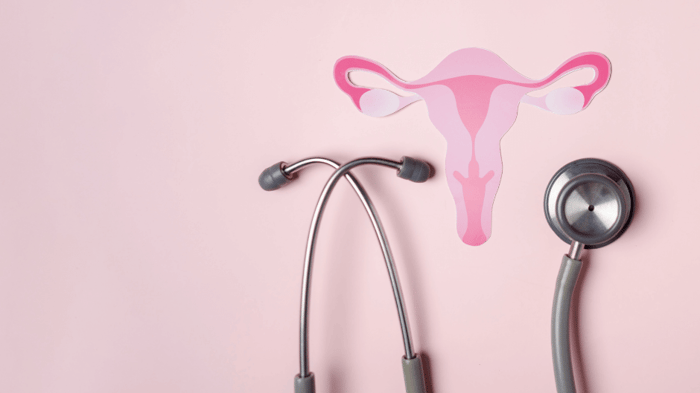Table of Contents
- The Confidence Myth
- 1. Confidence and the Body: Relearning the Mirror
- 2. The Hormone Effect: When Mood Meets Confidence
- 3. Sexual Confidence: Redefining Desire
- 4. Confidence in Public: Work, Friends, and Social Life
- 5. The Lifestyle Confidence Toolkit
- 6. The Confidence Mindset: Redefining the Narrative
- Confidence Is Your Menopause Superpower
The Confidence Myth
Menopause has long been painted as a thief—stealing youth, stealing beauty, stealing confidence. But let’s be honest: what it really steals are the outdated scripts society hands us. Those whispers that say “your best days are behind you” are just cultural noise, not biological truth.
Confidence during menopause isn’t about clinging to who you were at 25. It’s about stepping boldly into who you are at 50, 55, or 60. Think of it as a metamorphosis: the butterfly doesn’t mourn the caterpillar—it spreads its wings.
This phase can bring hot flashes that arrive like surprise fireworks, mood swings that feel like emotional rollercoasters, and sleep that plays hide-and-seek. But each challenge carries an opportunity: a chance to redefine power, sexuality, and self-worth on your terms.
So let’s get real. Confidence doesn’t magically survive menopause untouched—it evolves. And evolution can be beautiful.
1. Confidence and the Body: Relearning the Mirror
One of the biggest confidence crashes comes when your body stops playing by old rules. Wrinkles show up uninvited, fat redistributes itself like it’s redecorating without permission, and hair doesn’t always shine like it used to. It’s easy to see these shifts as a betrayal.
But here’s the secret: your body isn’t betraying you—it’s upgrading.
Reclaim rituals. Instead of obsessing over what’s lost, build routines that highlight what feels good now: richer moisturizers, new haircuts, bolder clothing choices.
Shift the lens. Start looking at your body as a timeline of survival, not a collection of flaws. Each line, scar, or curve is proof that you’ve lived.
Movement as proof of power. Yoga, weights, or dance aren’t just about fitness; they remind you that your body works. Confidence blooms when you feel functional, not just “pretty.”
The mirror isn’t your critic—it’s your witness. Train it to reflect evolution, not erosion.
2. The Hormone Effect: When Mood Meets Confidence
Estrogen and progesterone dips don’t just trigger hot flashes; they rattle your emotional baseline. Suddenly, you may feel less sharp, less patient, or less “yourself.” That’s not weakness—it’s biology.
But biology doesn’t have the final word.
Mindset rewiring. Use cognitive reframing: replace “I’m losing it” with “my brain is adapting.” Language matters.
Mental anchors. Daily practices—journaling, meditation, or even a five-minute walk—keep you centered when hormones swing.
Ask for help. Therapy isn’t about being “broken”; it’s about equipping yourself with tools to thrive.
Confidence here is less about “fixing” hormones and more about proving to yourself that you can adapt while they fluctuate.
3. Sexual Confidence: Redefining Desire
For many women, the confidence dip hits hardest in the bedroom. Vaginal dryness, discomfort, or lowered libido can whisper the lie that menopause equals the end of sensuality.
But intimacy doesn’t disappear—it transforms.
Talk openly. The most confident sentence you can say to a partner is: “Here’s what I need now.”
Rebuild with tools.Hormone-free vaginal supplements like She Juicy restore natural lubrication and comfort, turning anxiety into anticipation.
Expand the definition of intimacy. Desire isn’t just penetration. It’s touch, conversation, playfulness, and presence.
Confidence in sexuality during menopause isn’t about competing with your younger self—it’s about discovering a new version of pleasure that fits who you are today.
4. Confidence in Public: Work, Friends, and Social Life
Confidence doesn’t live only in your bedroom or your mirror—it shows up in boardrooms, coffee shops, and family dinners. And menopause has a way of showing up there, too.
At work: Instead of hiding symptoms, normalize them. Hot flashes aren’t signs of weakness; they’re signs of humanity. Small tools—like breathable clothing, hydration, or cooling sprays—can help you stay present without losing composure.
Among friends: Drop the silence. The moment you mention what you’re going through, someone will say, “Thank God, me too.” Confidence multiplies in the community.
In family: Educating partners or kids about menopause reduces tension and builds respect. When others understand, you stop feeling like you’re “overreacting.”
The social side of confidence is about refusing to vanish. Menopause doesn’t need to push you into the background—it can push you into leadership.
5. The Lifestyle Confidence Toolkit
Confidence during menopause thrives when your body and mind feel supported. Instead of chasing perfection, focus on nourishment and habits that keep you steady.
Food that fuels mood. Omega-3s for brain health, phytoestrogens (soy, flaxseed) for balance, and plenty of hydration to counter dryness.
Movement for mindset. Strength training builds posture and presence, yoga balances mood, and dance rekindles joy.
Rest as rebellion. Protecting your sleep is protecting your confidence. Simple rituals—no screens before bed, cooler rooms, relaxation techniques—make mornings brighter and steadier.
These aren’t chores. They’re confidence investments.
6. The Confidence Mindset: Redefining the Narrative
Cultures that honor menopausal women as wise leaders know a truth Western culture often forgets: confidence at this stage isn’t about clinging to youth, but about stepping into authority.
You’ve earned your experience, your insight, your resilience. Menopause is not an ending—it’s an initiation.
Write your new manifesto:
My body is not betraying me; it is evolving.
My desire isn’t gone; it’s reshaping itself.
My voice isn’t quieting; it’s amplifying.
Confidence isn’t a trait you “keep” or “lose.” It’s a practice you choose every day, even on sweaty, restless nights.
Confidence Is Your Menopause Superpower
Menopause changes your body. It shakes your routines. It sometimes rattles your emotions. But it doesn’t take away your power unless you let it.
Confidence here is radical: it’s choosing joy when culture tells you to fade, intimacy when fear tells you to hide, and leadership when silence tells you to stay quiet.
This stage isn’t about “staying” confident—it’s about becoming more confident than ever.











